Bert J. Claessens
Direct Load Control of Thermostatically Controlled Loads Based on Sparse Observations Using Deep Reinforcement Learning
Jul 26, 2017
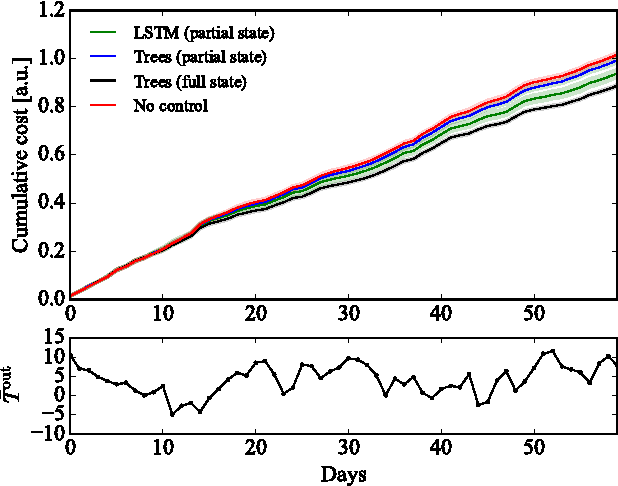
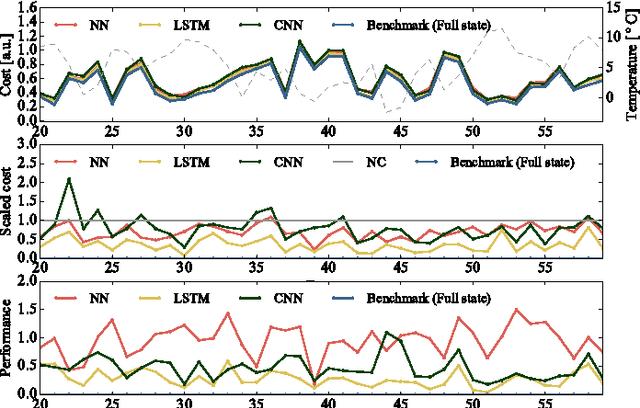
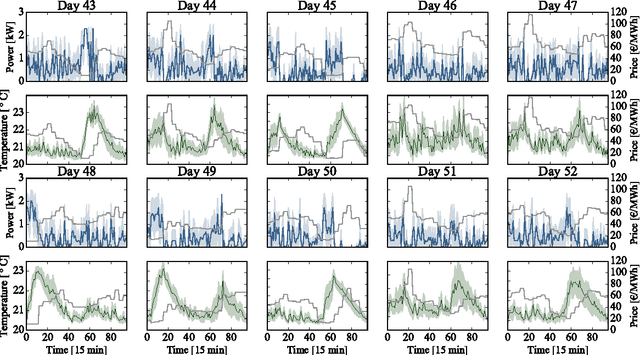
Abstract:This paper considers a demand response agent that must find a near-optimal sequence of decisions based on sparse observations of its environment. Extracting a relevant set of features from these observations is a challenging task and may require substantial domain knowledge. One way to tackle this problem is to store sequences of past observations and actions in the state vector, making it high dimensional, and apply techniques from deep learning. This paper investigates the capabilities of different deep learning techniques, such as convolutional neural networks and recurrent neural networks, to extract relevant features for finding near-optimal policies for a residential heating system and electric water heater that are hindered by sparse observations. Our simulation results indicate that in this specific scenario, feeding sequences of time-series to an LSTM network, which is a specific type of recurrent neural network, achieved a higher performance than stacking these time-series in the input of a convolutional neural network or deep neural network.
Model-Free Control of Thermostatically Controlled Loads Connected to a District Heating Network
Feb 24, 2017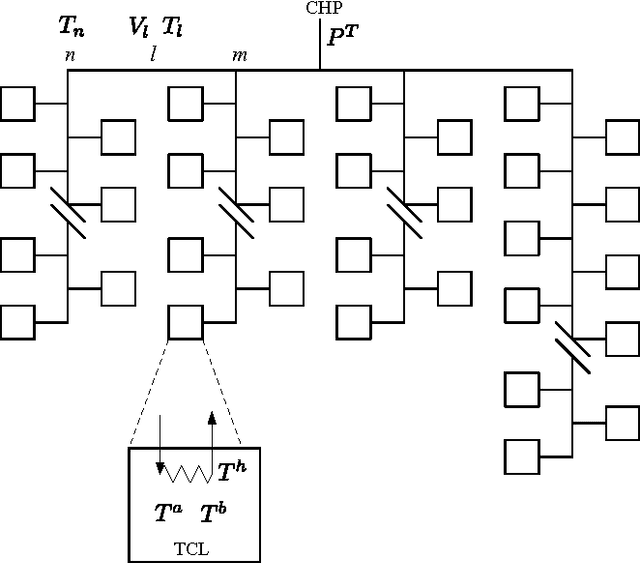
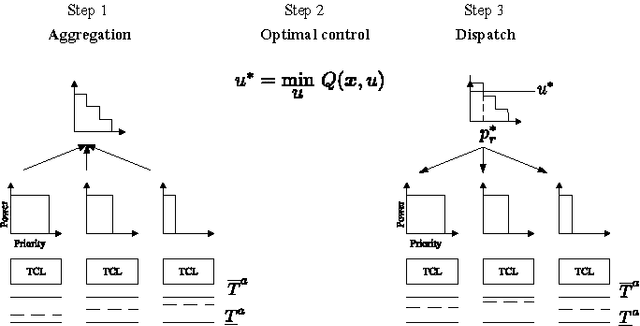
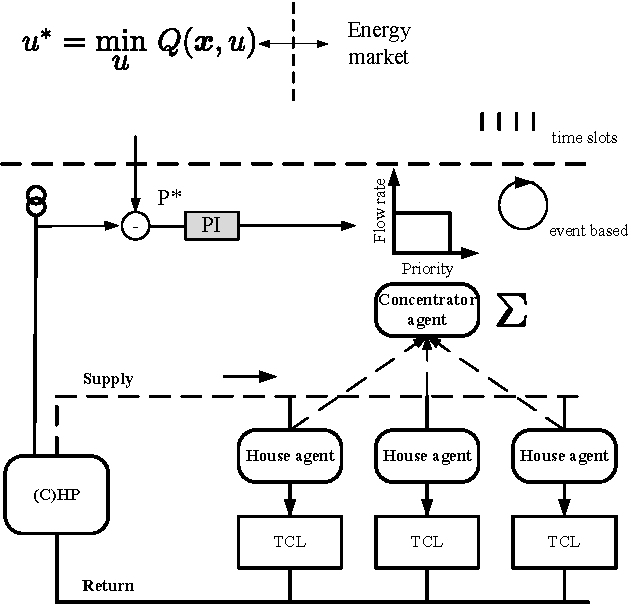
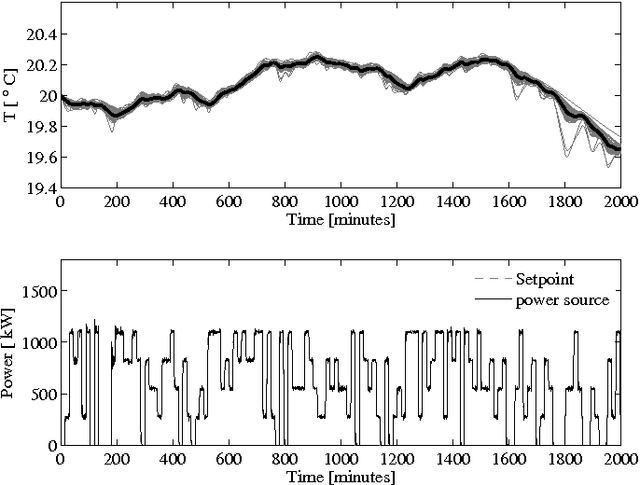
Abstract:Optimal control of thermostatically controlled loads connected to a district heating network is considered a sequential decision- making problem under uncertainty. The practicality of a direct model-based approach is compromised by two challenges, namely scalability due to the large dimensionality of the problem and the system identification required to identify an accurate model. To help in mitigating these problems, this paper leverages on recent developments in reinforcement learning in combination with a market-based multi-agent system to obtain a scalable solution that obtains a significant performance improvement in a practical learning time. The control approach is applied on a scenario comprising 100 thermostatically controlled loads connected to a radial district heating network supplied by a central combined heat and power plant. Both for an energy arbitrage and a peak shaving objective, the control approach requires 60 days to obtain a performance within 65% of a theoretical lower bound on the cost.
Convolutional Neural Networks For Automatic State-Time Feature Extraction in Reinforcement Learning Applied to Residential Load Control
Oct 11, 2016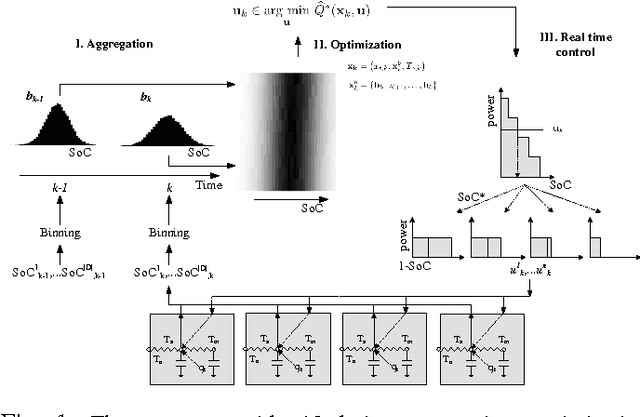

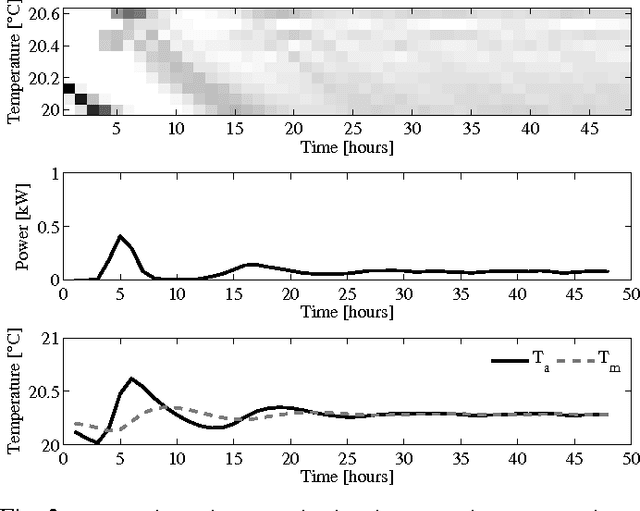

Abstract:Direct load control of a heterogeneous cluster of residential demand flexibility sources is a high-dimensional control problem with partial observability. This work proposes a novel approach that uses a convolutional neural network to extract hidden state-time features to mitigate the curse of partial observability. More specific, a convolutional neural network is used as a function approximator to estimate the state-action value function or Q-function in the supervised learning step of fitted Q-iteration. The approach is evaluated in a qualitative simulation, comprising a cluster of thermostatically controlled loads that only share their air temperature, whilst their envelope temperature remains hidden. The simulation results show that the presented approach is able to capture the underlying hidden features and successfully reduce the electricity cost the cluster.
 Add to Chrome
Add to Chrome Add to Firefox
Add to Firefox Add to Edge
Add to Edge